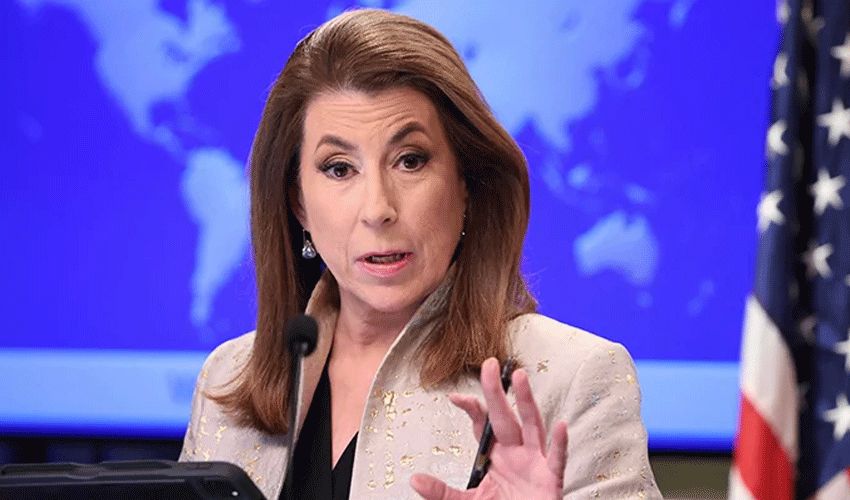The United States called on both India and Pakistan to demonstrate responsibility and seek peaceful, long-term solutions to their growing tensions in the aftermath of the recent violence in Pahalgam.
Addressing a press briefing, US State Department spokesperson Tammy Bruce stressed the importance of regional stability and urged both nations to pursue diplomatic avenues to resolve their differences. “We are in close contact with both governments at multiple levels and are monitoring the situation closely,” Bruce said.
The comments come in the wake of escalating hostilities following the alleged killing of 26 tourists in the Muslim-majority region of Pahalgam in Indian-occupied Kashmir on April 22.
The incident has triggered a series of retaliatory measures by New Delhi, including the suspension of the Indus Waters Treaty and a 48-hour ultimatum for Pakistani nationals to leave India. India also recalled its military attaché from Islamabad and ordered a significant reduction in diplomatic staff.
Indian Prime Minister Narendra Modi has reportedly granted "operational freedom" to the Indian military following the attack, prompting fears of a further escalation. Islamabad, in response, convened a National Security Committee (NSC) meeting and announced the suspension of all bilateral agreements with India, including the Simla Accord. Pakistan also closed its airspace and land routes, halted all forms of trade, and expelled Indian diplomats.
During the briefing, Bruce confirmed that US Secretary of State Marco Rubio had held separate conversations with Indian Foreign Minister Subrahmanyam Jaishankar and Pakistani Prime Minister Shehbaz Sharif. “Secretary Rubio emphasized the need for responsible actions that support long-term peace and regional stability,” he said.
While reiterating America’s strategic partnership with India, Bruce noted that Washington remains committed to supporting regional peace efforts. “As the President stated during his meeting with Prime Minister Modi last week, the United States stands firmly with India against terrorism,” the spokesperson added.
Bruce declined to comment on Russia’s stance regarding the recent Ukraine deal but mentioned that the economic partnership between the US and Ukraine would be “long-lasting.” He also stated that the venue for the fourth round of talks with Iran had yet to be finalized.
Praising the Trump administration’s diplomatic achievements, Bruce described the current US foreign policy as “successful” and referred to the administration as “the most transparent in American history.”
The recent developments have reignited fears of a full-scale diplomatic and military standoff between the two nuclear-armed neighbours. Analysts warn that without immediate de-escalation, the situation could spiral into a wider crisis with grave implications for South Asia.
Meanwhile, international observers, including the United Nations, have called for restraint and urged both sides to avoid further provocation. The diplomatic community is closely watching the region, hoping for a return to dialogue and diplomacy.


























